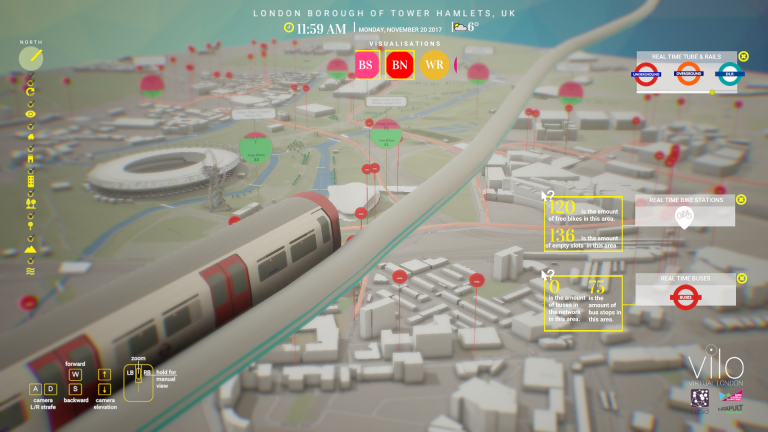Come and study with us to be at the forefront of future design and governance in our contemporary built environments.

Interested in acquiring the skills and methods to change, design and govern our smart cities in the coming decades?
Our focus at CASA is on advancing the state of the science of cities through research complemented by taught graduate study and consultancy. Our researchers, students and alumni work at the cutting edge of this interdisciplinary science.
CASA is home to geographers, mathematicians, physicists, economists, urban planners, architects and artists. Our interests include smart cities, transport, computer science, programming, data science, visualisation, prototyping and Internet of Things.
The skills acquired on our courses open doors to job opportunities in fields such as urban planning, city governance, engineering and data science. These are the skills that are crucial to the effective running of our future cities.
Our Master’s degrees can all be studied full-time in twelve calendar months, or on a part-time flexible basis at the student’s own availability between two and five years.
- Urban Spatial Science MSc [new for 2022]
- Urban Spatial Science MRes [new for 2022]
- Connected Environments MSc [new for 2021]
MPhil/PhD
CASA’s thriving PhD programme has graduated more than 50 students to date, many of whom are now in academia and industry. The PhD takes a minimum of three years full-time to complete and is an intensive self-directed research study supported closely by two academic supervisors.
 Close
Close

